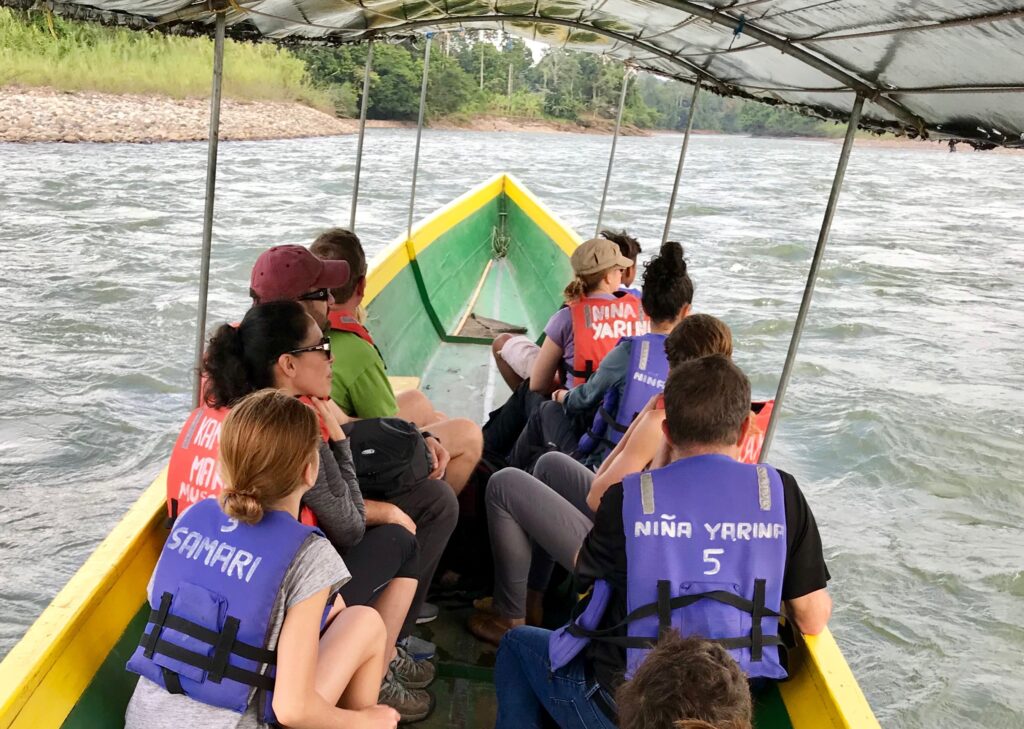Summary
This project is part of “Language for Sustainability: Sustaining biodiversity and biocultures” initiative, sponsored by the Global Consortium for Sustainability Outcomes (GCSO). GCSO member institutions work with local partners to implement and scale solutions that synergizes biodiversity conservation and biocultural revival.
The Language for Sustainability program
- Co-produces knowledge through biodiversity monitoring and other science-based conservation practices.
- Provides cash opportunities that encourage stewardship and discourage exploitative hunting.
- Promotes intercultural dialogue to build trust and value in indigenous biocultural knowledge and stewardship practices.
The Andes-Amazon Field School and Conservation International work collectively throughout the region to promote interpersonal relations between Indigenous Peoples and non-Indigenous Peoples to highlight commitment to place and foster stewardship. These implementation partners provide knowledge and agreements with local Indigenous People that are critical for successful outcomes.
This project has:
- Created local job opportunities for Quechuan families in bioculturally-enhanced environmental monitoring and tourism by expanding the teaching portfolio of the Andes Field School
- Employed native speakers to translate environmental monitoring and tourism teaching materials into local languages of the region
- Sought funding to scale the Sustainability Field School Model across the Amazon and Mexico
Publications
- Manuel-Navarrete, D., Buzinde, C. N., & Swanson, T. (2021). Fostering horizontal knowledge co-production with Indigenous people by leveraging researchers’ transdisciplinary intentions. Ecology and Society, 26(2). https://doi.org/10.5751/es-12265-260222
- Buzinde, C. N., Manuel-Navarrete, D., & Swanson, T. (2020). Co-producing sustainable solutions in indigenous communities through scientific tourism. Journal of Sustainable Tourism, 28(9), 1255–1271. https://doi.org/10.1080/09669582.2020.1732993
- Polheim, A., Manuel-Navarrete, D., Goebel, J. et al. Embodying relationality through immersive sustainability solutions with Indigenous communities in the Ecuadorian Amazon. Sustain Sci 19, 1445–1457 (2024). https://doi.org/10.1007/s11625-024-01523-4
Participant stories

Partners and funding
- Andes-Amazon Field School
- Conservation International
- Global Consortium for Sustainable Outcomes
- Leuphana University of Lüneburg
- Universidad Nacional Autónoma de México
- Universidad San Francisco de Quito